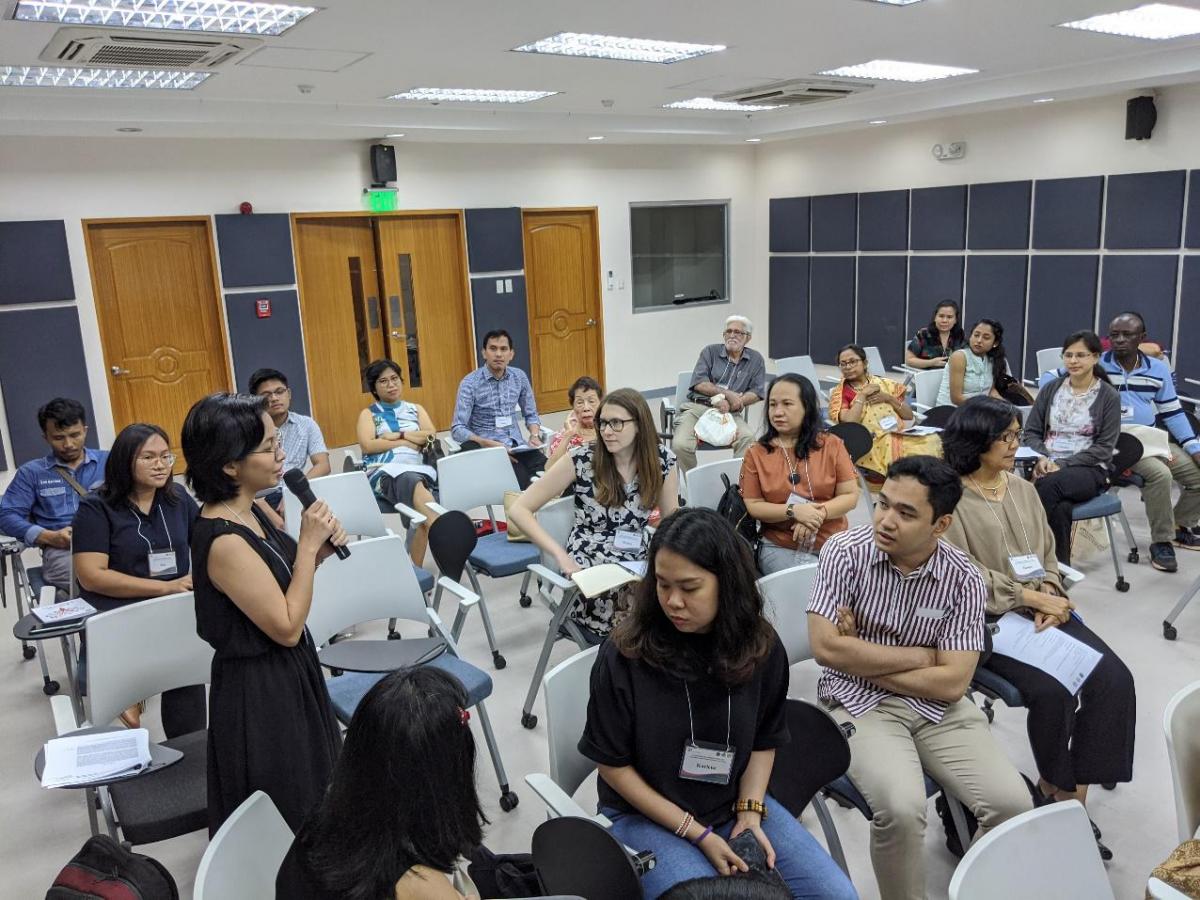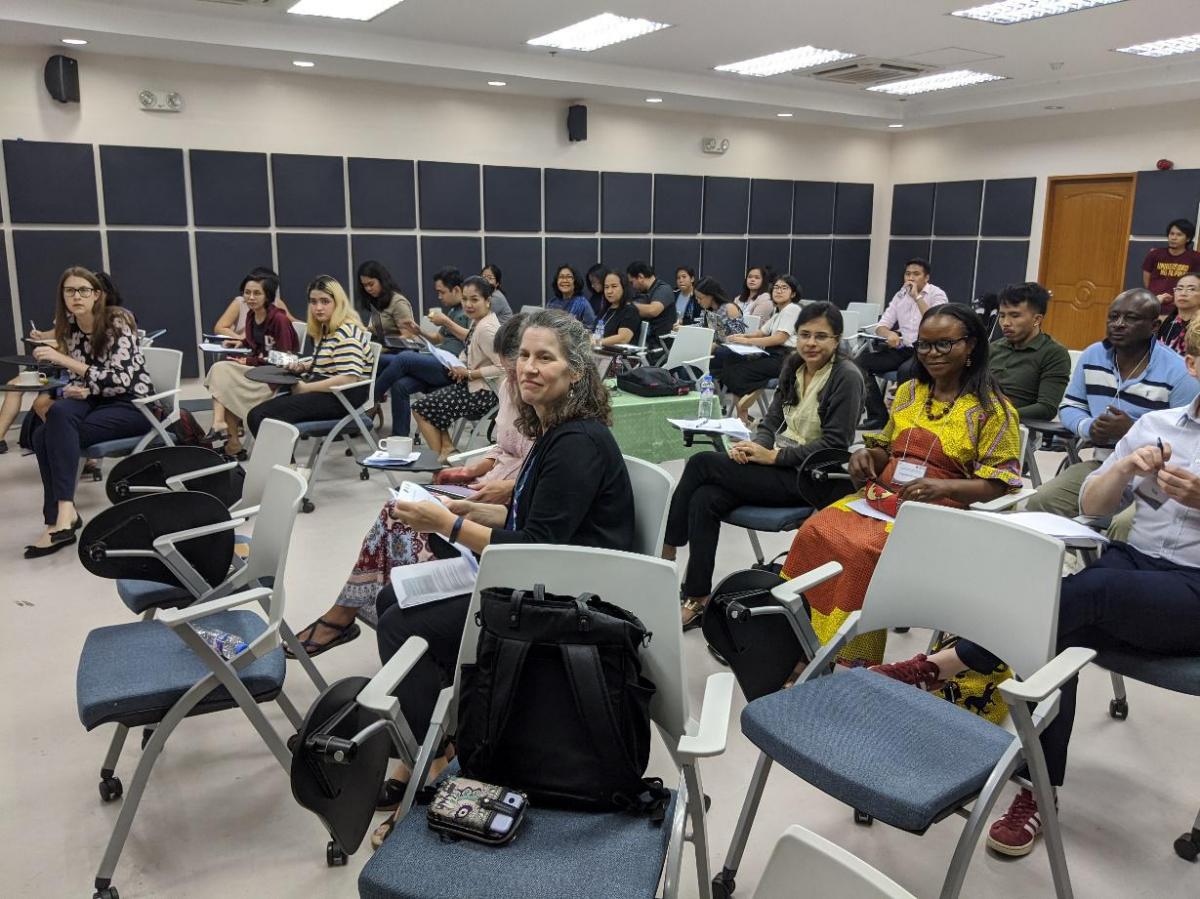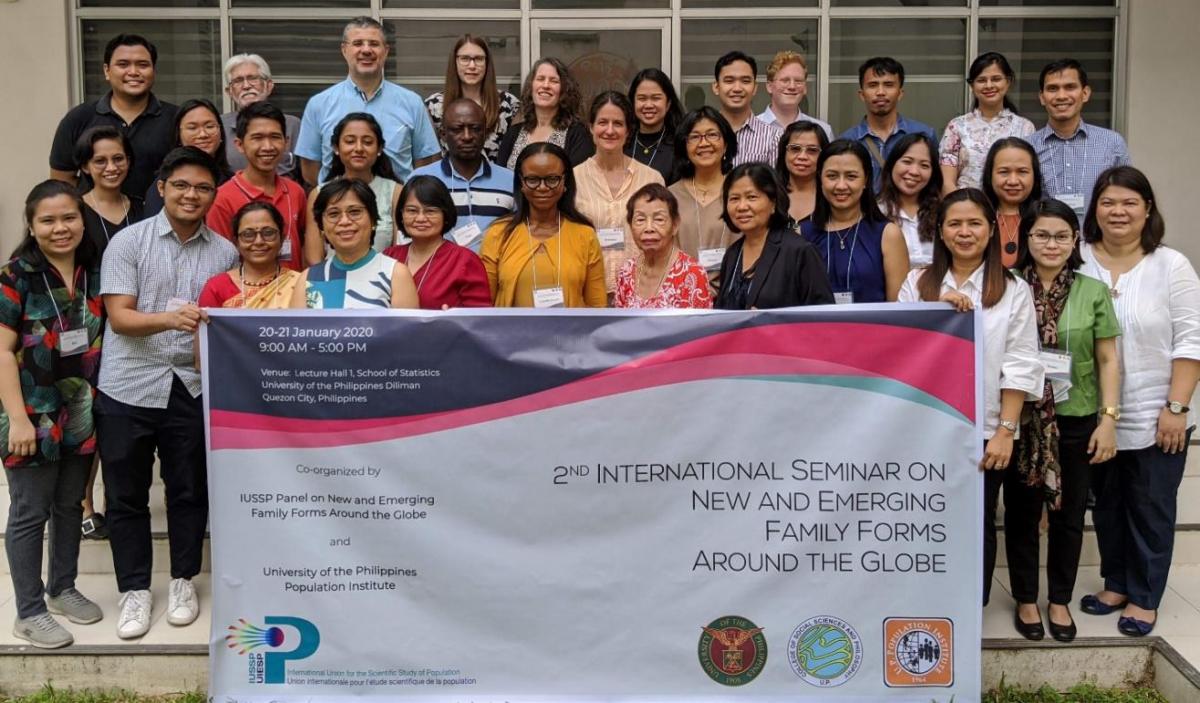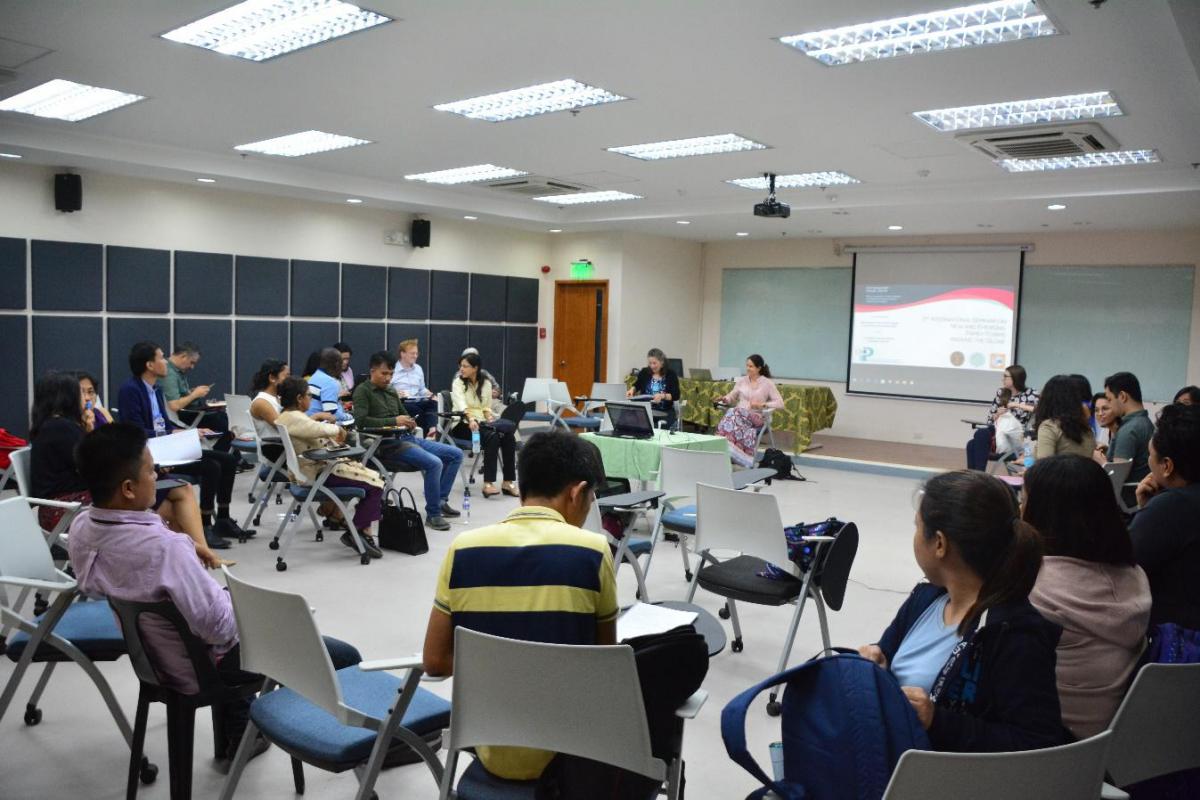2nd IUSSP International Seminar on New and Emerging Family Forms around the GlobeUniversity of the Philippines, Diliman, Quezon City, Philippines, 20-21 January 2020
After its seminal event in Barcelona, Spain in 2018, the IUSSP Scientific Panel on New and Emerging Family Forms around the Globe conducted its 2nd International Seminar on 20-21 January 2020 at the University of the Philippines Diliman with the U.P. Population Institute (UPPI) hosting. Generous support from the IUSSP and U.P. Office of International Linkages (UP-OIL) as well as individual participant contributions were key to the success of the event.
Despite the ongoing threat of a major eruption from Taal Volcano in Batangas Province, about 90 km south of the venue, the Seminar was able to proceed with 11 presentations and around 37 local and international observers present. While five presentations were cancelled due to the inability of some participants to fly to Manila in relation to Taal, the fact that the majority of registered participants still expressed their willingness to attend led the host organization UPPI in consultation with the IUSSP to press on as scheduled.
Presenters represented four continents of the world - Africa, Asia, Europe, and North America. Each of the presentations was immediately followed by an open forum. Members of the faculty of the UPPI and UP Department of Sociology served as moderators of the sessions. While most individual presentations dealt with country or regional data, post-presentation discussions at the end of every day encouraged cross-country and cross-regional comparison and more in-depth analyses.
The Seminar began with UPPI Director and IUSSP Panel member, Maria Midea M. Kabamalan giving the welcome remarks. Next was a message by Mercedes B. Concepcion, Philippines National Scientist and Honorary President of the IUSSP followed by IUSSP Panel Chair Brienna Perelli-Harris’s introduction of the event.
Session 1 entitled “Family Change around the World” saw five presentations which focused on changing family dynamics especially in relation to socio-economic determinants. Cohabitation was explored in both European and African contexts, in terms of its relationship with, among others, socio-economic status and spatial context. In Europe as well, researchers zoomed in on the dynamics between relationship quality and childbearing and separation. In a pan-Asian context, Indian and Philippine studies explored ongoing shifts and changes in family forms as newer arrangements have come to the fore, upending more clear-cut, traditional family settings.
After the fifth presentation, Albert Esteve led a spirited, 30-minute discussion on changing family patterns with key inputs from the session.
The second day of the Seminar saw three sessions with two paper presentations each. Session 1, entitled “Changes in Partnership Formation and Living Together” presented the bounded shifts in decision-making in terms of arranged marriages in India and, in the second paper, the phenomenon of commuter unions in Nigeria in relation to changing gender roles and rising standard of living. Session 2, “Living Alone”, saw a global comparison of the rates of “living alone” by sex and age group and its relationship with human development index. The other presentation discussed expectations of marriage timing and the delay of marriage in the USA in relation to race, gender and socio-economic class. Finally, Session 3, “Living Alone and Childlessness”, looked into the isolation and self-measured loneliness of older people in the Philippines and the differences in decision-making paths for Indians and Canadians in relation to a childless (or childfree) partnership.
Summing up the second day’s presentations was another lively discussion led by Sharon Sassler followed by the closing ceremony.
This Seminar was able to help the participants in rethinking their thoughts about new and emerging family life forms around the world as well as the threats and challenges that further complicate these changes and shifts.
The IUSSP Panel members met after the seminar and selected several papers from this seminar and from the first one in Barcelona, to be invited to have them published as an edited volume.
See:   Organizing Committee: IUSSP Scientific Panel on New and Emerging Family Forms Around the Globe Brienna Perelli-Harris (University of Southampton) Albert Esteve (Centre d’Estudis Demogràfics, Universitat Autònoma de Barcelona) Maria Midea M. Kabamalan (University of the Philippines) James Raymo (University of Wisconsin at Madison) Sharon Sassler (Cornell University)
|


